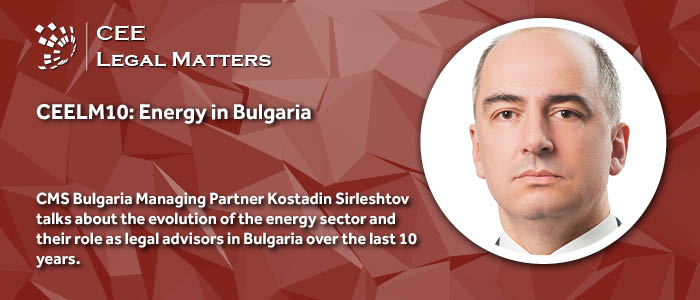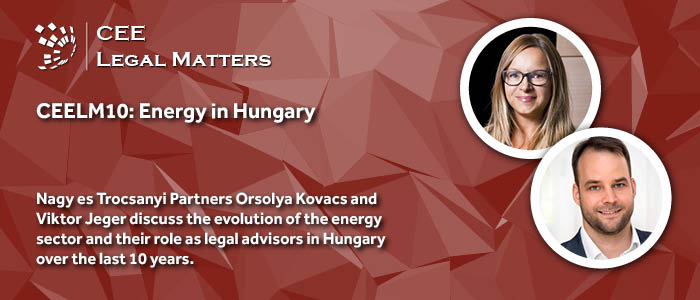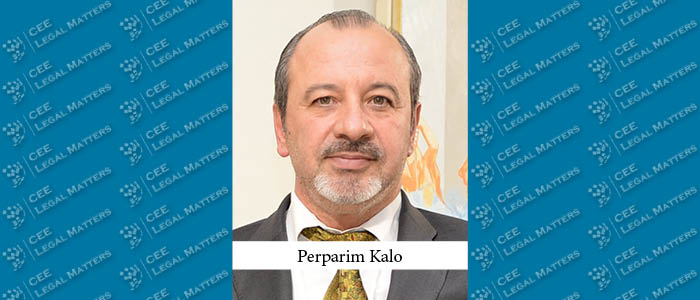KP Law Managing Partner Onur Kucuk talks about the evolution of the sector and their role as legal advisors in Turkiye over the last 10 years.
CEELM10 Interview: A Decade of M&A in Ukraine
Avellum Managing Partner Mykola Stetsenko talks about the evolution of the practice and their role as legal advisors in Ukraine over the last 10 years.
CEELM10 Interview: A Decade of Banking in Bulgaria
Schoenherr Partner Tsvetan Krumov talks about the evolution of the banking sector and their role as legal advisors in Bulgaria over the last 10 years.
CEELM10 Interview: A Decade of Disputes in Romania
Musat & Asociatii Partner Iuliana Iacob talks about the evolution of dispute resolution and their role as legal advisors in Romania over the last 10 years.
CEELM10 Interview: A Decade of Energy in Bulgaria
CMS Bulgaria Managing Partner Kostadin Sirleshtov talks about the evolution of the energy sector and their role as legal advisors in Bulgaria over the last 10 years.
CEELM10 Interview: A Decade of Energy In Hungary
Nagy es Trocsanyi Partners Orsolya Kovacs and Viktor Jeger discuss the evolution of the energy sector and their role as legal advisors in Hungary over the last 10 years.
CEELM10 Interview: A Decade of Energy in Slovakia
Eversheds Sutherland Slovakia Managing Partner Bernhard Hager talks about the evolution of the energy sector and their role as legal advisors in Slovakia over the last 10 years.
CEELM10 Interview: A Decade of Energy In Turkiye
Guleryuz Partners Partner Zahide Altunbas Sancak talks about the evolution of the energy sector and their role as legal advisors in Turkiye over the last 10 years.
CEELM10 Interview: A Decade of PPP/Infrastructure In Romania
Musat & Asociatii Deputy Managing Partner Iulian Popescu talks about the evolution of PPP/Infrastructure and their role as legal advisors in Romania over the last 10 years.
CEELM10 Interview: A Decade of Real Estate In Bulgaria
Schoenherr Counsel Elena Todorova and Attorney at Law Dimitar Vlaevsky talk about the evolution of the real estate sector and their legal advisor roles in Bulgaria over the last 10 years.
CEELM10 Interview: A Decade of Real Estate In Romania
Albota Law Firm Partner Oana Albota talks about the evolution of the real estate sector and her role as legal advisors in Romania over the last 10 years.
CEELM10 Interview: A Decade of TMT In Romania
Tuca Zbarcea & Asociatii Partner Catalin Baiculescu talks about the evolution of the TMT sector and their role as legal advisors in Romania over the last 10 years.
CEELM10 Interview: A Decade of TMT In Ukraine
Baker McKenzie Partner Oleksiy Stolyarenko talks about the evolution of the TMT sector and their role as legal advisors in Ukraine over the last 10 years.
Legal Business Development 2.0: Interview with John James McVeigh of Nixedonia
With a private practice background spanning over 20 years, John James McVeigh is the CEO and Head Trainer at Nixedonia – a business development company he established in 2015. He shares some of his insights on business development in the CEE legal world.
Editorial: The Stories We (and Numbers) Tell
The CEE by the Numbers special issues – like the one we just launched last week – have always been close to my heart. Between our former editor David and I, he was always the writer. Some people just have a way with words. Others – words no have. I always found soothing serenity in numbers instead. But, just like words, numbers can tell a lot of stories. And each time we suffer in front of massive Excel sheets at 2 a.m. putting together the CEE by the Numbers reports, I find myself comparing the stories we are told with those that the numbers tell us.
Guest Editorial: Advantages of a Regional Experience
For the followers of the CEE Legal Matters, the question of cooperation among local firms in deals that often have a regional nature is central. Such cooperation involves, first and foremost, the acquaintance between the law firms involved in the deal and their members.
Room To Grow: Developing Capital Market Landscapes in CEE
ACI Partners Legal Manager Carolina Parcalab, Avellum Senior Partner Glib Bondar, Gecic Law Counsel Miodrag Jevtic, Vujacic Law Office Partner Sasha Vujacic, and Schoenherr Bulgaria Local Partner Tsvetan Krumov discuss the current status of capital markets in CEE.
CEE M&A Outlook: Steady As She Goes
With CMS’s recently published European M&A Outlook report taking the temperature of the M&A activity across the continent, CMS Romania Managing Partner Horea Popescu and CMS Vienna Partner Alexander Rakosi share their insights on M&A trends in the CEE region.

































